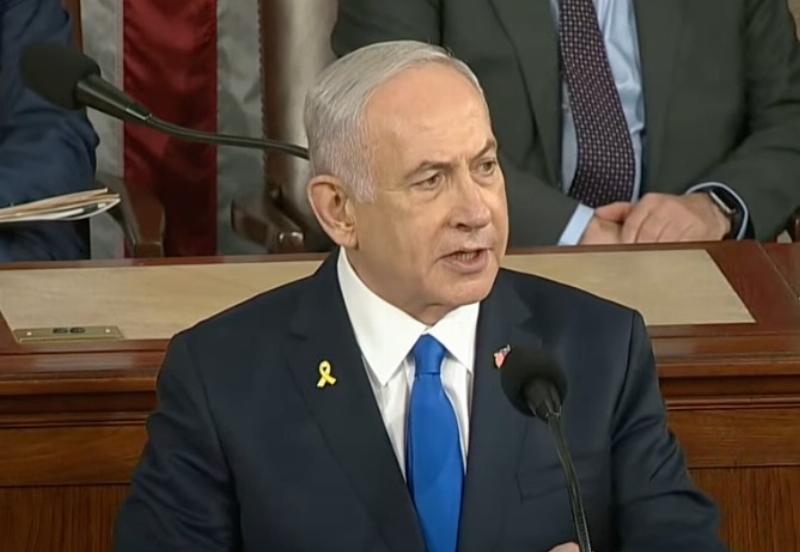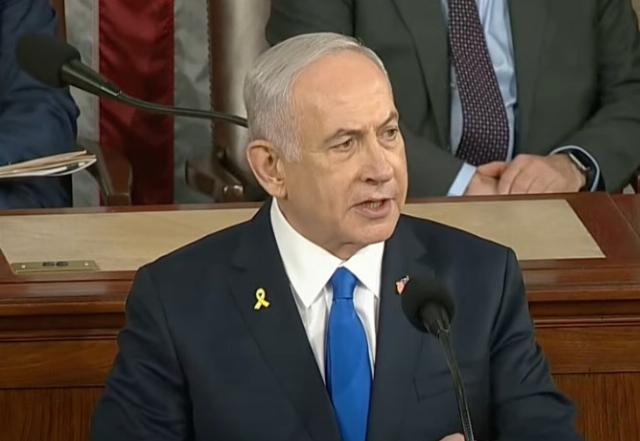


Just when you think the situation in the Israel/Gaza War can’t get any more complicated, another wrench has been thrown in the works. The action was meant to be kept secret, but the truth came out:
Israel is arming local militias in Gaza in an effort to counter Hamas in the besieged enclave, officials say, as opposition politicians warned that the move endangers national security.
Israeli Prime Minister Benjamin Netanyahu defended the covert enterprise on Thursday, calling it ‘a good thing.’ In a video posted on social media, Netanyahu said Israel had ‘activated clans in Gaza which oppose Hamas,’ and that it was done ‘under the advice of security elements.’
It’s unclear who the “security elements” are.
The ongoing operation was authorized by Netanyahu without security cabinet approval, two officials told CNN, which is the normal forum for making major policy decisions. Netanyahu’s far-right coalition partners would likely have vetoed such a move.
Meanwhile, Hamas said the plan revealed ‘a grave and undeniable truth.’ In a statement, the militant group said: ‘The Israeli occupation army is arming criminal gangs in the Gaza Strip with the aim of creating a state of insecurity and social chaos.’
The leader of the primary militia is Yasser Abu Shabab, who heads an armed group that is staying in a part of Rafah that he controls.
It’s no surprise that the opposition to Netanyahu is also angry about his reported acting without approval, and their protests have some legitimacy:
[Avigdor] Liberman [sic], who heads the opposition Yisrael Beytenu party, told the Kan public broadcaster on Thursday morning that Prime Minister Benjamin Netanyahu had unilaterally approved the transfer of weapons to the Abu Shabab clan, an armed gang or militia that is opposed to Hamas’s rule in the Gaza Strip.
‘The Israeli government is giving weapons to a group of criminals and felons, identified with Islamic State, at the direction of the prime minister,’ Liberman [sic] charged. ‘To my knowledge, this did not go through approval by the cabinet.’
Abu Shabab denies that his organization is receiving arms from Israel; evidence suggests the opposite:
A nascent Palestinian militia called the Popular Forces (PF), led by Gazan clan leader Yasser Abu Shabab, has received Kalashnikov rifles from Israel. The transfer of light weapons was facilitated by Israeli security services and approved by Prime Minister Benjamin Netanyahu, The Times of Israel reported. The move reflects Israel’s broader strategy to bolster rival factions in Gaza capable of challenging Hamas’s dominance, it noted.
The PF has denied being a militia or a newly formed faction, claiming its members were forced to arm themselves due to the security vacuum and widespread lawlessness caused by the war in Gaza. In a statement issued on May 28, the group said that its primary mission is to restore stability, notably by protecting the delivery of humanitarian aid.
The distribution of humanitarian aid is now being handled by the Gaza Humanitarian Foundation out of the United States; American contractors are distributing the meals:
Following a one-day pause due to logistical work, the Gaza Humanitarian Foundation (GHF) reported on June 5 that it distributed 1,441,440 meals through its Safe Distribution Sites (SDSs) in Tal al-Sultan and the Saudi Neighborhood in the southern city of Rafah. During its initial phase of operations, GHF said it has delivered approximately 8.48 million meals through a total of 132,480 aid boxes. The GHF said it is working on opening additional aid distribution centers, including sites in the northern Gaza Strip.
Whether Abu Shabab has played any role in the safe distribution of meals in Rafah, as he has claimed, is unclear—in the past he has raided aid distribution convoys.
The current situation raises many issues regarding the practicality of arming the Popular Forces: Should Netanyahu be penalized for not seeking approval from Israel’s security council? Is Israel arming a military force that could use its weapons against Israel? Has Israel done any vetting of the members of the Popular Forces? Will the benefits of arming Abu Shabab and his forces outweigh the risks?
Finally, one writer got to the heart of the situation:
‘Empowering non-Hamas groups in Gaza and providing a new civilian-led government for Gaza is essential to removing Hamas. However, working with armed groups that are not vetted or have been involved in crimes in the past, or which have connections to extremists, should be avoided or treated with extreme caution. Arming these non-Hamas groups presents an increased risk, not only to IDF soldiers operating near them in Gaza but also to Israeli civilians. Replacing Hamas is important after more than 600 days of war; however, any initiative in Gaza should be tied to a larger strategy and vision for a post-Hamas era in Gaza and the return of hostages to Israel.’ — Seth J. Frantzman, FDD Adjunct Fellow
Israel should take a step back and consider whether empowering the Popular Forces is a wise move, and if other steps can be taken to ensure Israel’s national security.
Are they simply arming another potential enemy?

Image: YouTube video screen grab.
